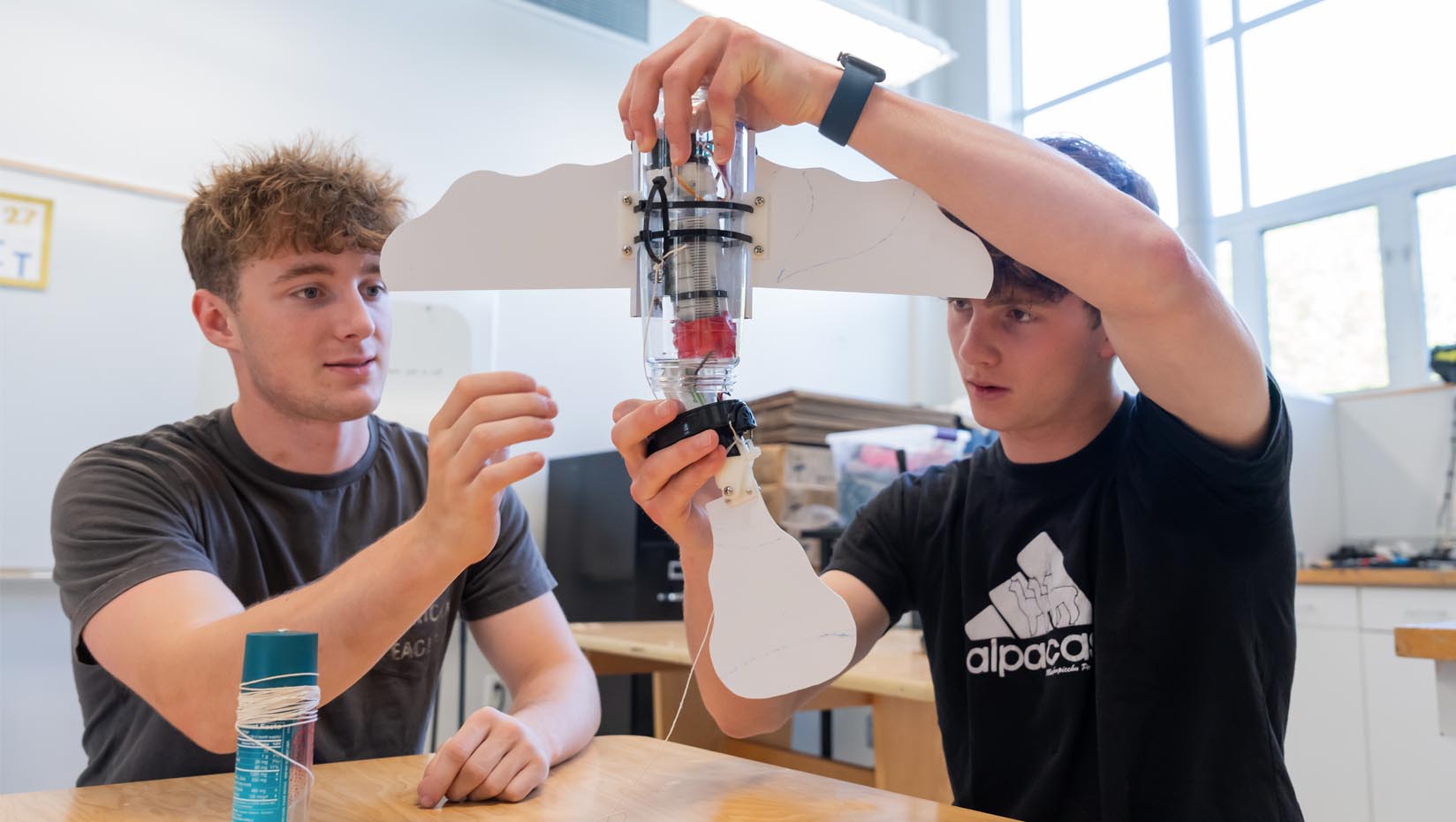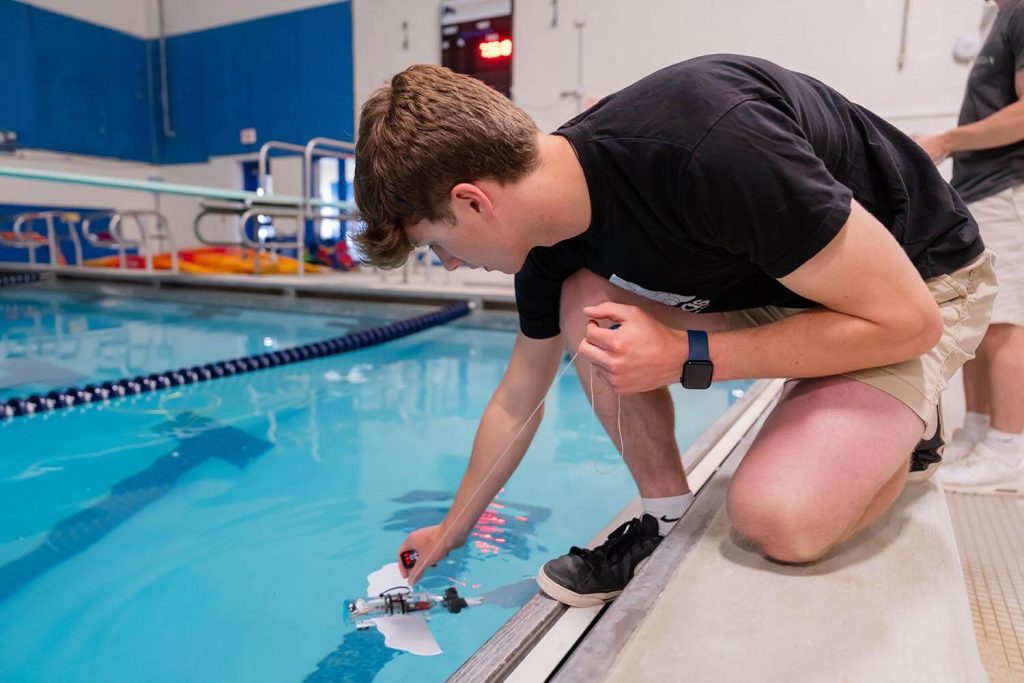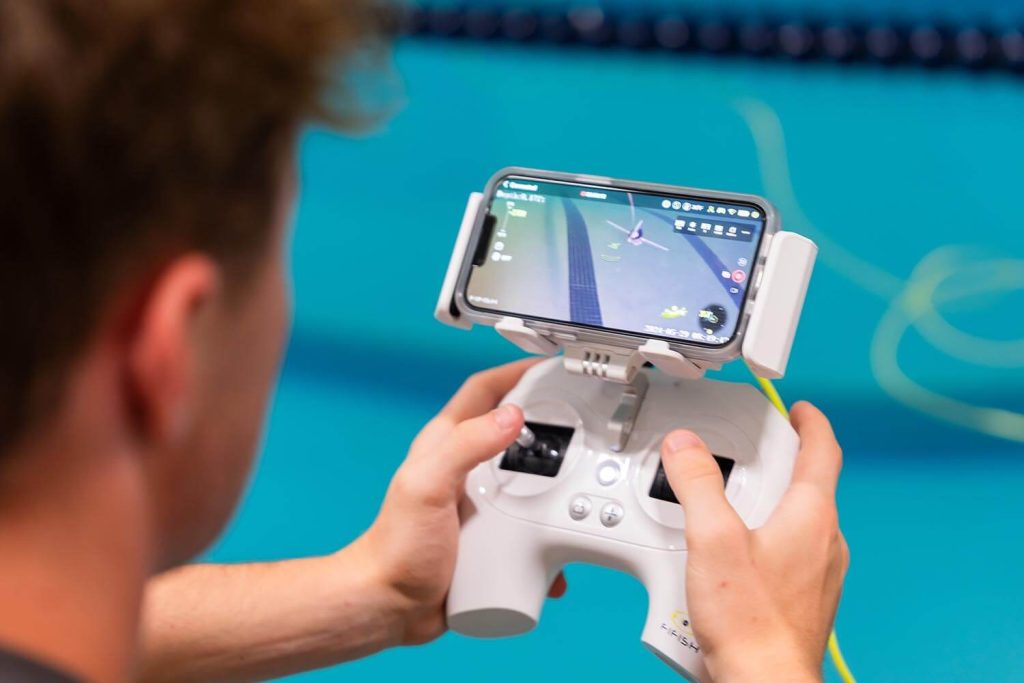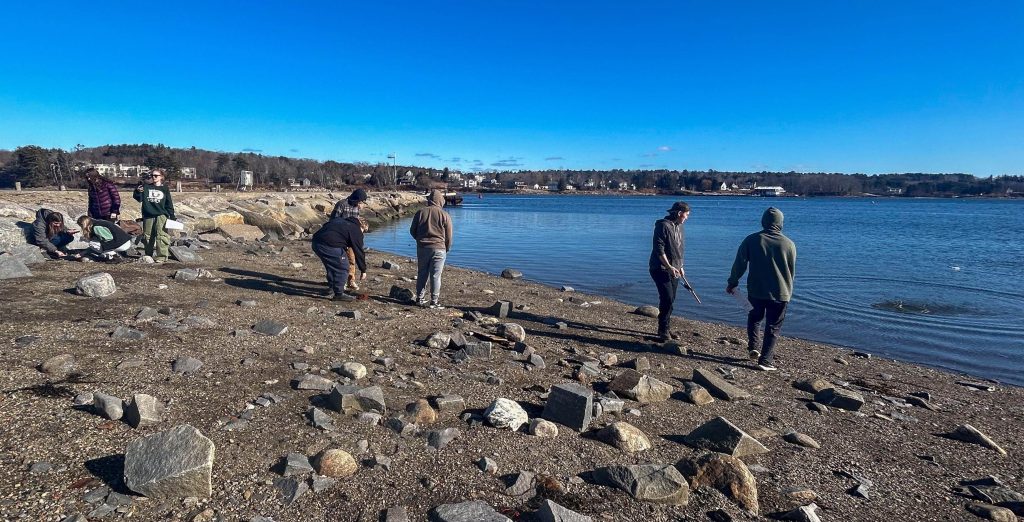
UMaine’s RiSE Center helps Belfast teachers create empowering student research experiences
For the first time in its 34-year history, students from the Belfast Community Outreach Program for Education (BCOPE) — an alternative high school program for academically at-risk students — participated in the Maine State Science Fair. Three students competed in March with self-designed aquaponic and hydroponic systems for tomatoes, peppers, lettuce and other produce; and one earned an award.
Devising these hydroponic and aquaponic systems was one of several new projects that BCOPE science teacher Lindsey Schortz facilitated this year to teach students about conducting research, utilizing advanced technology and collecting and interpreting data. Others included a periwinkle survey along Belfast Bay, a coral reef bleaching study, an analysis of bacterial growth and a soil study of BCOPE’s gardens.
Schortz designed the activities with support from the Maine Center for Research in STEM Education (RiSE Center) at the University of Maine, which conducts research in teaching and learning and designs professional learning experiences, often in partnership with educators in all levels of instruction. The center is also collaborating with select teachers at Belfast Area High School and Troy A. Howard Middle School to create new interactive projects exploring engineering, marine science and other fields. Through their partnerships, educators and RiSE Center faculty and staff sought to bring a variety of engaging research experiences to middle and high school students with the intent of increasing student confidence and data literacy skills.

For Schortz’s high school students, these projects provided more than skills in research and data analysis — they improved students’ abilities to communicate and form relationships. Students also interacted with scientists who gave them confidence and empowered their curiosity, helping them become more enthusiastic about learning and independent inquiry. When a snowstorm hit the Belfast area the same day of the Maine Science Fair, students from BCOPE still participated remotely.
“They came through a snowstorm to be here at school to present on Zoom, which they all hate, to a panel of scientists that they were afraid of. So that’s what I saw. I saw engagement. I saw confidence. I saw enthusiasm,” Schortz said.
The collaborative initiative between the RiSE Center and teachers in Belfast began in May 2022 when they worked together to secure a $1.35 million National Science Foundation Innovative Technology Experiences for Students and Teachers grant. With funding in hand, they were able to begin creating new learning experiences, particularly those that could complement the high school’s marine institute.

“We’ve been trying to think about different ways students can collect data, different ways students work with data, trying a couple of new technology options that were available,” said Marina Van der Eb, acting assistant director of the RiSE Center.
Teachers devised project ideas in collaboration with RiSE Center faculty and staff. The center also offered educational, technical and financial assistance for projects, such as workshops for teachers on data collection and interpretation and advice on how to use existing equipment in new ways. As education researchers explore new, more effective ways to teach K–12 students, RiSE Center faculty and staff are working with them to evaluate the effectiveness of the experiences.
“I think there was a lot of freedom given to the teachers to try to figure out what sort of authentic experience would work best for their students. Because that’s part of the whole point of the research-practice partnership,” said Kelsey Davis, STEM education research associate with the RiSE Center.
Students are not only engaging with quantitative data, but also qualitative data, particularly within the social sciences. Some projects involved community outreach. Following a Jan. 10 coastal storm that brought high-speed winds and heavy rainfall to Maine’s coast, Belfast Area High School students in teacher Chip Lagerbom’s current events class surveyed waterfront businesses on how they were affected. Feedback was shared with the community to help evaluate various options for buffering the city from storms, such as building a sea wall. Lagerbom designed the assignment with his student teacher, Keith Fletcher.
“We wanted students to learn through this and other examples that the science of collecting data is really important to their community and can help the community make better decisions,” said RiSE Center Director Susan McKay.

Belfast Area High School science teacher David Thomas also collaborated with the RiSE Center on creating new experiments for his students. He tasked students with engineering projects such as designing underwater sea gliders and floating buoys equipped with sensors for data collection, as well as collecting and sharing water quality information data with Belfast Bay Watershed Coalition. The students participated in tours of UMaine research facilities and engaged with their community through various events, including the project’s Community Dine and Discuss where they showcased their work.
“It’s a great way for them to gain communication skills, engage with the community and gain other skills needed for careers,” Thomas said.
Participating in the initiative with the RiSE Center allowed Thomas to meet and exchange ideas with other teachers on how to bolster his curricula.
“It gave me inspiration and an opportunity to engage kids in these high-quality experiences, like engaging with the public,” Thomas said. “Credit to the RiSE Center for being flexible and accommodating and working with the schedules of high school classroom teachers.”
Throughout the summer and the 2024–25 academic year, the RiSE Center will expand the initiative and codesign student research experiences with middle and high schools along the Maine coast from Kittery to Lubec.
Contact: Marcus Wolf, 207.581.3721; marcus.wolf@maine.edu
